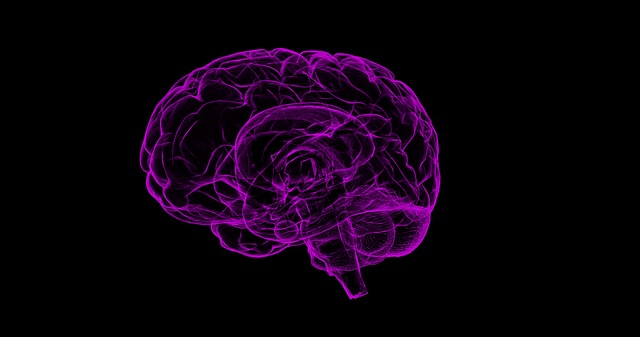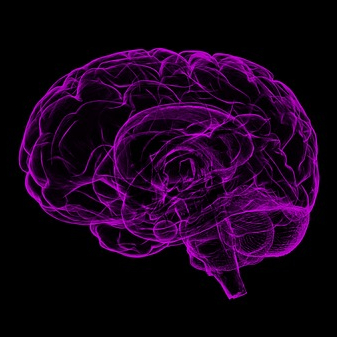The Link Between the Brain and the Gut: Exploring the Gut-Brain Axis
The connection between the brain and the gut is a topic that has gained significant attention in recent years, shedding light on how these two seemingly distant parts of the body are deeply intertwined. This relationship, often referred to as the gut-brain axis, encompasses a complex network of biochemical signaling between the gastrointestinal tract and the central nervous system. Research on this axis reveals that our gut health can influence our mood, behavior, and overall mental wellbeing, while the brain, in turn, affects the digestive system. Understanding the gut-brain connection can provide valuable insights into a wide range of health issues, from irritable bowel syndrome (IBS) and anxiety to depression and neurodegenerative diseases. This article will explore the mechanisms underlying the gut-brain axis, the role of the microbiome, and how lifestyle factors, diet, and stress can impact this vital relationship.
The Gut-Brain Axis: An Overview
The gut-brain axis refers to the bidirectional communication network between the central nervous system (CNS) and the enteric nervous system (ENS) of the gastrointestinal tract. This complex connection involves multiple pathways, including the nervous system, immune system, and endocrine system.
These pathways allow for rapid and dynamic communication between the gut and brain, which helps regulate various bodily functions and maintain overall homeostasis.
The Role of the Gut Microbiome
One of the most significant discoveries in recent years has been the role of the gut microbiome in the gut-brain axis. The microbiome is a community of trillions of bacteria, viruses, fungi, and other microorganisms that reside in the gastrointestinal tract. These microorganisms play essential roles in digestion, immune function, and the production of certain neurotransmitters.
Microbiome and Neurotransmitter Production
The gut microbiome influences the production of neurotransmitters that are crucial for brain function and emotional regulation. For instance, certain bacteria in the gut are involved in the synthesis of serotonin, a neurotransmitter that regulates mood, sleep, and appetite. In fact, approximately 90% of the body's serotonin is produced in the gut. Similarly, gut bacteria produce gamma-aminobutyric acid (GABA), a neurotransmitter that helps regulate anxiety. The microbiome can also influence the production of dopamine, norepinephrine, and other neurotransmitters, impacting not only mental health but also cognitive functions such as memory and focus.
The Microbiome's Role in Inflammation and Immunity
The gut microbiome plays a crucial role in regulating immune function and inflammation. Imbalances in the microbiome, often referred to as dysbiosis, can lead to an overactive immune response and chronic inflammation. This inflammation can affect the blood-brain barrier, allowing inflammatory cytokines to enter the brain and potentially contribute to mood disorders, cognitive decline, and neurodegenerative diseases.
Influence on the Hypothalamic-Pituitary-Adrenal (HPA) Axis
The gut microbiome can also influence the hypothalamic-pituitary-adrenal (HPA) axis, which is involved in the body's stress response. When the gut microbiome is disrupted, it can lead to an exaggerated HPA response to stress, causing increased levels of cortisol and other stress hormones. Chronic activation of the HPA axis can contribute to conditions like anxiety, depression, and irritable bowel syndrome (IBS).
Mental Health and the Gut-Brain Connection
The gut-brain axis plays a significant role in mental health, with a growing body of evidence suggesting that gut health can influence the development and severity of mood disorders such as anxiety and depression.
Anxiety and Depression
Studies have shown that individuals with anxiety and depression often have altered gut microbiomes compared to healthy individuals. This dysbiosis may contribute to increased inflammation, changes in neurotransmitter levels, and heightened HPA axis activity. Research has found that probiotics, which help restore balance to the microbiome, can reduce symptoms of anxiety and depression in some people.
Stress and the Gut
Chronic stress can significantly impact gut health by altering the composition of the microbiome and increasing intestinal permeability, often referred to as “leaky gut.” When the gut lining is compromised, it allows bacteria, toxins, and other harmful substances to enter the bloodstream, triggering an immune response that can affect the brain. The gut's response to stress can create a feedback loop: stress affects gut health, which in turn exacerbates stress, creating a vicious cycle that can be challenging to break. Mindfulness practices, relaxation techniques, and dietary changes are often recommended to manage stress and support gut health.
Neurological Disorders and the Gut-Brain Axis
Research on the gut-brain connection has expanded to include neurological disorders, such as Parkinson’s disease, Alzheimer’s disease, and autism spectrum disorder (ASD). While the relationship between gut health and these disorders is still being explored, there are some interesting findings that highlight the potential role of the gut-brain axis in their development.
Parkinson’s Disease
Parkinson’s disease is a progressive neurological disorder that affects movement, balance, and coordination. Recent studies have found that individuals with Parkinson’s disease often have altered gut microbiomes, and symptoms like constipation can appear years before motor symptoms manifest. Some researchers suggest that the disease might even begin in the gut and spread to the brain through the vagus nerve, a hypothesis known as the “gut-first” theory.
Alzheimer’s Disease
Alzheimer’s disease, the most common form of dementia, has also been linked to gut health. Chronic inflammation and an impaired blood-brain barrier are both associated with Alzheimer’s disease, and gut dysbiosis may contribute to these issues. Research is ongoing to determine if manipulating the microbiome could potentially slow the progression of Alzheimer’s disease or reduce its risk.
Autism Spectrum Disorder (ASD)
Autism spectrum disorder is a complex developmental disorder with a range of symptoms affecting social interaction, communication, and behavior. Many individuals with ASD experience gastrointestinal issues, and research has shown that they often have different microbial compositions in their gut compared to neurotypical individuals. Studies are investigating whether the gut microbiome could influence ASD symptoms, with some evidence suggesting that restoring gut health may alleviate some of these symptoms.
Diet, Lifestyle, and the Gut-Brain Axis
Since the gut-brain axis is influenced by the microbiome, diet and lifestyle choices play a crucial role in maintaining its balance. Certain foods, probiotics, and lifestyle habits can help support gut health, improve mental wellbeing, and strengthen the gut-brain connection.
Probiotics and Prebiotics
Probiotics are beneficial bacteria that can be found in fermented foods like yogurt, kefir, sauerkraut, and kimchi. They can also be taken as supplements to support gut health and balance the microbiome. Prebiotics, on the other hand, are types of dietary fiber that feed the good bacteria in the gut. Foods rich in prebiotics include garlic, onions, leeks, asparagus, and bananas. Research has shown that probiotics can help reduce symptoms of anxiety, depression, and other mental health conditions by restoring gut balance. Prebiotics help support this process by nourishing the beneficial bacteria and promoting a healthy gut environment.
Fiber-Rich Foods
A diet high in fiber is essential for gut health, as fiber helps feed the beneficial bacteria in the gut and promotes healthy digestion. Whole grains, fruits, vegetables, nuts, and seeds are excellent sources of dietary fiber. By supporting the gut microbiome, a fiber-rich diet can enhance the gut-brain connection and reduce inflammation, which may have a positive impact on mental health.
Reducing Processed Foods and Sugar
Processed foods, artificial sweeteners, and high-sugar diets can disrupt the gut microbiome and contribute to inflammation. Studies have shown that diets high in sugar and unhealthy fats can increase the risk of anxiety, depression, and cognitive decline. Reducing these foods and focusing on whole, nutrient-dense options can help maintain a healthy microbiome and support brain health.
Mindfulness and Stress Reduction Techniques
Since chronic stress can negatively impact the gut, incorporating stress reduction techniques into daily life can help improve gut health and enhance the gut-brain connection. Practices such as meditation, yoga, deep breathing, and progressive muscle relaxation can help regulate the body’s stress response, reduce cortisol levels, and support the gut microbiome.
Future Directions in Gut-Brain Axis Research
Research on the gut-brain axis is still in its early stages, but it holds promising potential for future therapeutic applications. As scientists continue to uncover the intricate ways in which the gut and brain communicate, new treatments may emerge for mental health conditions, neurodegenerative diseases, and gastrointestinal disorders. For example, microbiome-based therapies, such as fecal microbiota transplantation (FMT), are being investigated for their potential to restore gut balance and improve symptoms in conditions like IBS, Parkinson’s disease, and ASD. Additionally, ongoing research is exploring the use of psychobiotics, which are probiotics specifically selected for their impact on mental health.
The gut-brain axis represents a fascinating and complex relationship that has far-reaching implications for health and wellbeing. By understanding how the gut and brain communicate, we can gain insights into a wide range of health conditions and explore new approaches to treatment and prevention. Taking care of the gut through a balanced diet, stress management, and supporting a healthy microbiome can not only benefit physical health but also enhance mental wellbeing. As research in this field continues to evolve, we can expect to see even more profound connections between the gut and brain, highlighting the importance of a holistic approach to health. Whether you’re interested in improving digestion, reducing anxiety, or supporting cognitive health, nurturing the gut-brain connection can be a valuable step toward achieving better overall health.



